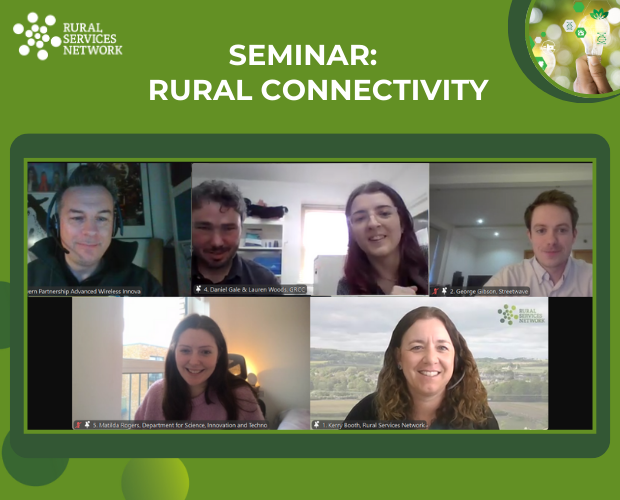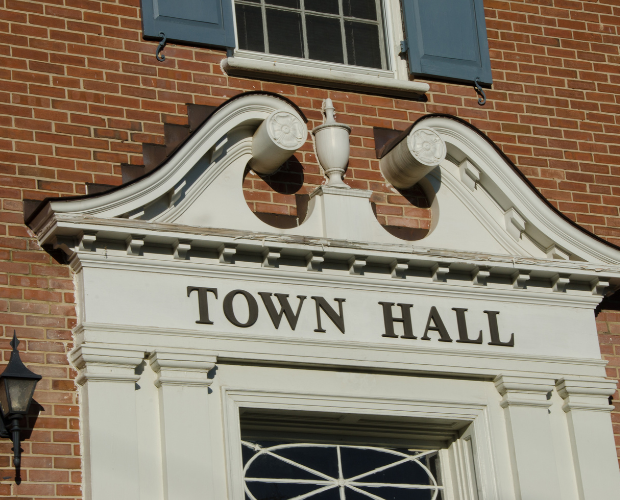T: 01822 851370 E: [email protected]
Rural Economy Spotlight - December 2023

A quarterly bulletin facilitated by your membership of the Rural Services Network highlighting a selection of current rural economic development news, issues and opportunities
State of Rural Enterprise report published
 The National Innovation Centre for Rural Enterprise (NICRE) has published a report providing an assessment of the ‘cost-of-doing-business’ pressures on rural businesses. The analysis draws on data from a large-scale survey of 2,000 rural firms and 600 urban firms.
The National Innovation Centre for Rural Enterprise (NICRE) has published a report providing an assessment of the ‘cost-of-doing-business’ pressures on rural businesses. The analysis draws on data from a large-scale survey of 2,000 rural firms and 600 urban firms.
The report outlines that rising costs are causing serious and widespread problems for rural businesses in parts of England which is curtailing their ability to invest and grow.
NICRE state: “Two-thirds of rural firms in the North East, South West and West Midlands - increasing to 69% of businesses in more remote areas, and 82% in the hospitality sector - report that rising costs have significantly impacted cash flow over the last year, with four out of 10 of them reducing, cancelling or postponing investment.”
Responding to the report, CLA President Victoria Vyvyan said: “Farmers, landowners and rural businesses are dynamic and forward-thinking, but face many challenges and barriers that impact them to a greater extent than their urban counterparts, as highlighted in this report. These include energy costs, connectivity issues, transport and fuel, housing, and skills provision and labour availability.”
You can read more and access the full report at the following link:
Rural businesses show resilience, but investment curtailed by rising costs - NICRE
Community Farm, tourist attractions and community hubs in line for rural grants in East Hampshire
An eco light festival in Selborne and a memorial garden for Jane Austen in Alton were among the business-boosting projects to receive money recently from East Hampshire District Council.
In total six schemes were awarded money through the Rural Grant Scheme, a government programme to fund small businesses and community infrastructure.
Other projects to get backing included improvements at two more of East Hampshire’s most famous tourist attractions, Chawton House and Butser Ancient Farm, and upgrades to two community halls.
The scheme makes up part of the council's wider Grow Up programme which seeks to bring improvements to businesses and communities in rural East Hampshire.
In total the council received 44 applications and officers and councillors worked together to assess the bids and allocate the funds.
This Selborne project will be the UK’s first ‘eco light festival,’ placing sustainability at the forefront of the experience and bringing to life Gilbert White’s work as the ‘father of ecology’.
You can read more at the following link:
Tourist attractions and community hubs in line for rural grant funding | East Hampshire District Council (easthants.gov.uk)
The Council is also using funds from the UK Shared Prosperity Fund to establish a community farm – called Grow Up – which will support the council’s ambitions to improve welfare, social cohesion, economic development and a huge range of other priorities. The Councill state: “It will give respect back to sufferers of dementia who will benefit from the physical activity and mental stimulation it provides. It will offer apprenticeships, training and traditional skills to boost the rural economy and deliver local jobs. It will employ new technologies to deliver carbon-neutral farming techniques, sustainable food-production and make use of new digital and virtual platforms. It will teach our kids about food and where it comes from.”
You can read more about this project at:
Community Farm | East Hampshire District Council (easthants.gov.uk)
Community Energy Grant scheme opens for applications
Rural and local communities across England will be supported in setting up local energy projects that will provide local jobs and deliver energy security, thanks to a new £10 million government fund which has recently opened for applications.
Both urban and rural communities will have the chance to win a portion of a new £10 million Community Energy Fund - new government grant funding to help communities develop local renewable energy projects.
This funding will help to kickstart projects including small-scale wind farms and rooftop solar partnerships, as well as battery storage, rural heat networks, electric vehicle charging points, and fuel poverty alleviation schemes - all proposed, designed and owned by local people.
This feasibility funding is available via your regional Net Zero Hub. Details are due to be published on the individual websites shortly. The links to each of the Hubs are:
- Greater South East Net Zero Hub
- North West Net Zero Hub
- South West Net Zero Hub
- Midlands Net Zero Hub
- North East and Yorkshire Net Zero Hub
RSN 2024 seminar programme released
The online seminar programme for 2024 is now open for booking. Events will be taming place as follows:
- Rural net zero – 31st January
- Rural connectivity – 28th February
- Rural fair funding – 27th March
- Rural economy – 24th April
- Rural transport – 22nd May
- Rural affordable housing – 26th June
- Rural planning – 23rd October
- Rural health and care – 27th November
To book a place on any of the seminars follow this link.
Rural innovation highlighted at national conference
At the end of November, with national stakeholders at an event in London, the National Innovation Centre for Rural Enterprise (NICRE) highlighted the importance of evidencing how rural enterprises are adapting and innovating through an ever-changing business environment.
The event was packed wull of interesting panel sessions and presentations. Rural business insights were given by Neil Harrison, from Reheat in Northumberland, and Duncan Peake, from Raby Estates in Country Durham and Shropshire, as part of a conversation at the event, and Northumberland-based Breamish Valley Cottages and Stroud Brewery in Gloucestershire in the form of videos.
Rachel Laver, from Marches Local Enterprise Partnership, Rebecca Hyrslova, from Federation of Small Businesses, and Georgina Edwards, from Plunkett Foundation, reflected on the implications of NICRE’s ‘State of Rural Enterprise’ results for the policy and business support landscape and its connection to rural enterprises in a panel.
Following an overview of NICRE’s work to catalyse rural innovation by collaborating with partners on a series of testbed projects, including showcasing a project to energise community resilience in Northumberland, Michelle Marshalian, of the Organisation for Economic Cooperation and Development (OECD), presented an international perspective.
You can view all the presentations and videos from the event at the following link:
Step change in rural enterprise evidence base - NICRE
Rural England statistical digest available
The Statistical Digest of Rural England is a collection of statistics on a range of social and economic topics and provides broad comparisons between Rural and Urban areas by settlement type.
Prepared by DEFRA, the Digest is structured into thematic reports and incorporates the previously separate publication the Rural Economic Bulletin.
The Digest consists of the following thematic reports:
- Population
- Housing
- Health and Wellbeing
- Communities and Households
- Connectivity and Accessibility
- Education, Qualifications and Training
- Rural Economic Bulletin
You can access all the contents at the following link:
About the Digest and Rural Definitions - GOV.UK (www.gov.uk)
Post Offices providing more services but rural still struggling
The new Post Office service which allows customers to choose which parcel carrier to use has started to roll out across the network.
Customers are given the option to send their parcel through the Post Office or through other couriers like DPD or Evri. Selected branches have introduced the service in time for the peak Christmas delivery season.
However, National Federation of SubPostmasters (NFSP) Chair Tim Boothman says it is bringing challenges to smaller Post Offices: “Over the last few weeks, we have been hearing positive feedback from the larger offices. However, we have also been hearing from single-counter post offices who are struggling with the sudden influx of parcels from the new carriers and we will push PO for solutions for these offices.”
RSN Chief Executive, Kerry Booth, recently met with the chair of the All-Party Parliamentary Group for Post Offices, Marion Fellows (Motherwell & Wishaw, SNP) to discuss the future of rural Post Offices, especially in light of the planned changes to DVLA services. Kerry said: “We discussed the importance of rural post offices and the role they play in their communities. The RSN shares her concerns regarding the changes to the services provided for the DVLA and the impact that will have on rural areas. At a time when the Post Office is taking on additional services which will hopefully secure their future, it seems counterintuitive to be removing the DVLA services. Whilst you can access services online, not everyone has access to the internet in rural areas, or the digital skills to use these services, so the ability to renew licences at the Post Office for rural communities is important. We hope to work with Ms Fellows and the APPG for Post Offices to secure a positive future for them and the communities they serve.”
Earlier this year the Parliamentary Under-Secretary of State for Business & Trade, Kevin Hollinrake (Thirsk & Malton, Con) reaffirmed his commitment to the Post Office network in a debate in the House of Commons
Meanwhile, the NFSP’s petition calling on the government to reverse its decision to remove DVLA services from the Post Office network from the Sunday 31 March 2024 has nearly reached its 9,000-signature target. The NFSP says it intends to deliver the petition, which can also be found as hard copies in local Post Office branches, to 10 Downing Street.
You can read more, and view the petition here.
Rural Economy Insights from RSN
Economy Insight on the RSN website has now been updated with an analysis examining employment landscape at the local authority level. The analysis shows proportions of employees in broad industrial sectors over the years 2015 to 2021 and allows selection of authority or class and classification averages. Points of note from the analysis include:
- In 2021 both Predominantly Rural and Predominantly Urban areas shared Health as the number one sector for employment.
- Manufacturing was the key sector for employment of full-time workers in Predominantly Rural areas in 2021.
- Retail, Health and Accommodation and Food Services were key sectors for the employment of part-time staff for both Predominantly Rural and Predominantly Urban areas.
Find out more on the RSN Member’s Insights Pages here.
Grants to install electric vehicle charging points at the workplace
The government’s Workplace Charging Scheme (WCS) is a voucher-based scheme that provides support towards the up-front costs of the purchase and installation of electric vehicle (EV) charge-points, for eligible businesses, charities and public sector organisations.
The grant covers up to 75% of the total costs of the purchase and installation of EV charge points (inclusive of VAT), capped at a maximum of:
- £350 per socket
- 40 sockets across all sites per applicant – for instance, if you would like to install them in 40 sites, you will have 1 socket available per site
More information including application forms are available via this link.
Broadband funding available
The Government is providing up to £210m worth of voucher funding as immediate help for people suffering from slow broadband speeds in rural areas.
Vouchers worth up to £4,500 for homes and businesses help to cover the costs of installing gigabit broadband to people’s doorsteps.
You can check whether your premises is eligible for a voucher, find a list of registered suppliers, and see those who are active in your area on the website below.
https://gigabitvoucher.culture.gov.uk/
Local business organisations – keep calm and sign up!
RSN exists to enable the issues facing the rural areas of England to be identified, information and good practice to be shared and government to be challenged to address the needs and build on the opportunities which abound in rural areas. We have a number of Chambers of Trade, Commerce and Local Business Networks who are members of RSN and currently receive our bulletins. If there is a business organisation in your area who you think would find our bulletins useful, please pass this bulletin onto them and ask them to contact Andy Dean with their contact details so we can ensure they are included in future distributions.
Future editions of the Rural Economy Spotlight
The next edition of this bulletin will be distributed in March 2024. If you have any suggestions as to future content or would like to submit a short article for inclusion, please contact Andy Dean.
SIGN UP TO OUR NEWSLETTER
Sign up to our newsletter to receive all the latest news and updates.









